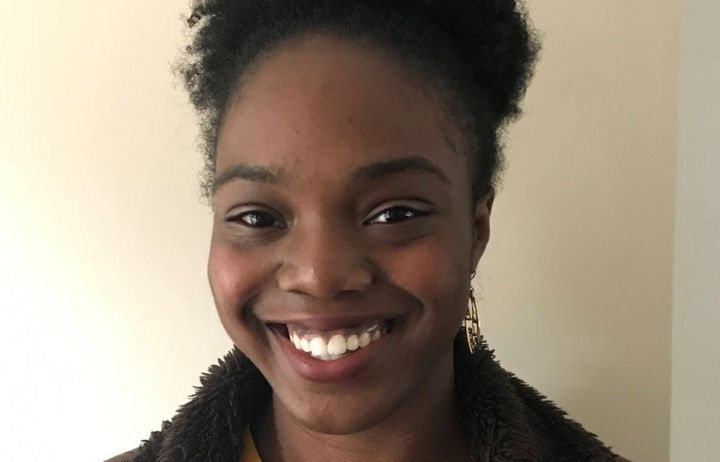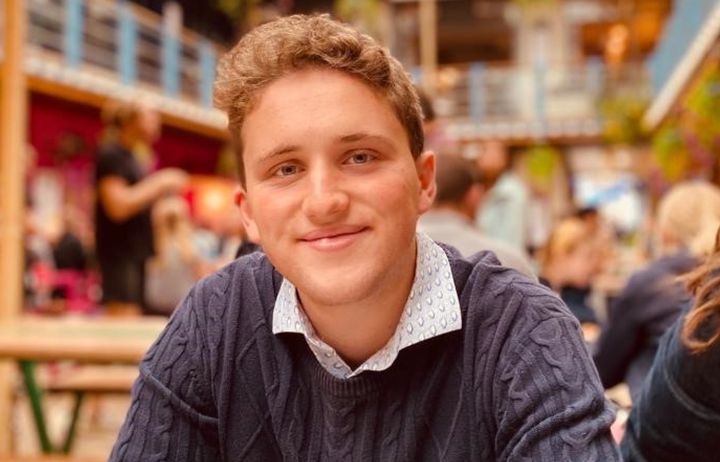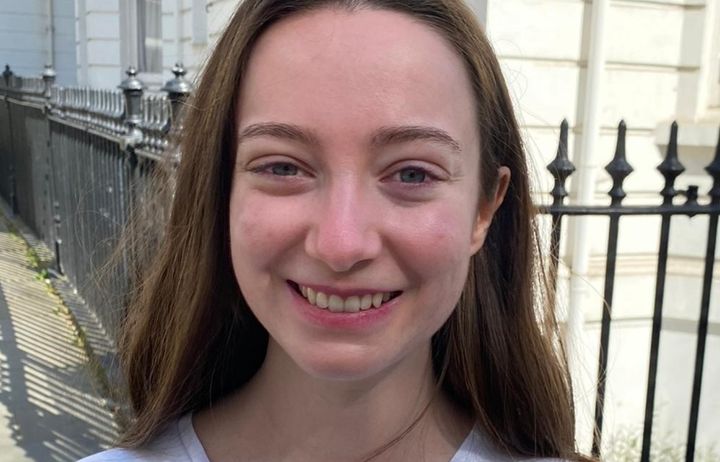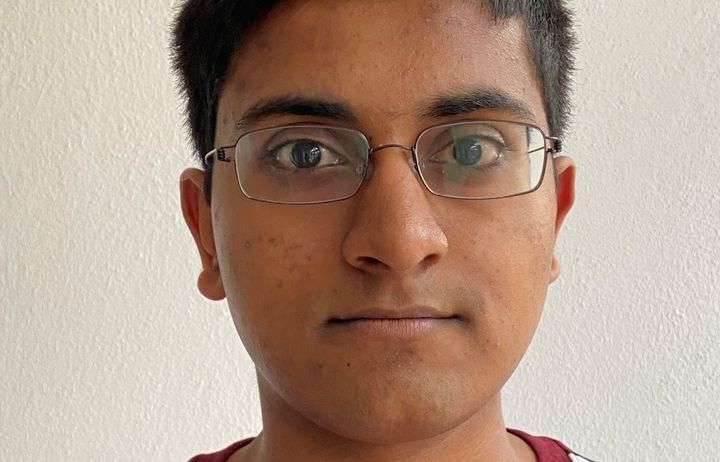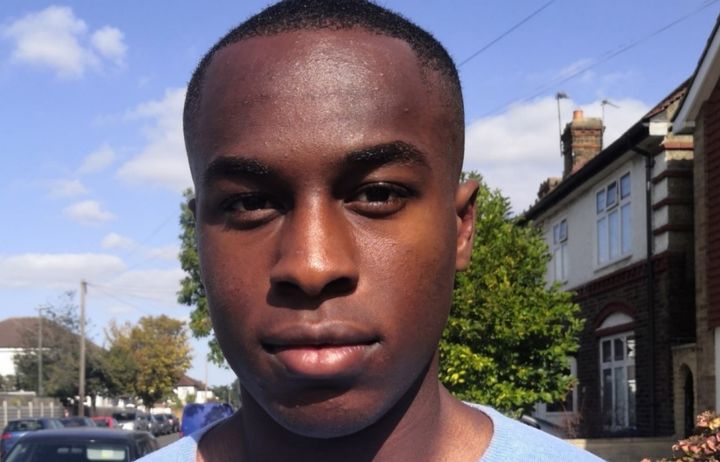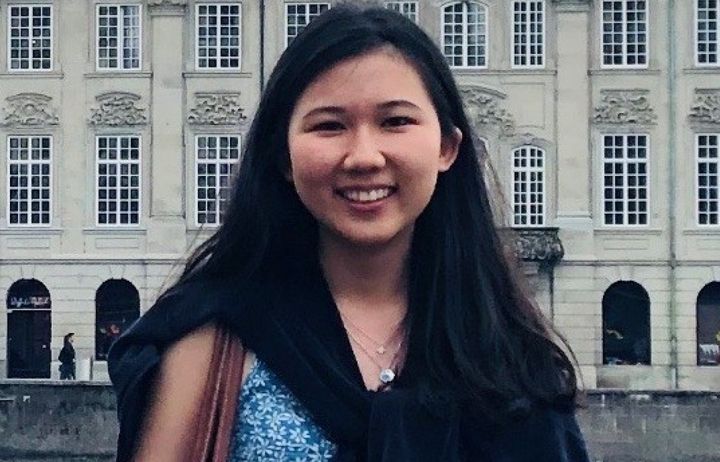Rebekah Christie
 Nationality: British
Nationality: British
Degree Programme: MSci Physics with Theoretical Physics
Year of Programme: Year 1
What A-levels did you take? Maths, Further Maths, Physics, Chemistry
Studying physics
Tell us where your passion for physics started
My passion for physics started when I was revising for my GCSEs. I had just finished studying conduction, convection and radiation, and I was so impressed that I could tell my mother how and why her tea cooled down! I found myself going into internet “wormholes” when I was studying, and an interest in physics was sparked.
Why did you decide to study physics at Imperial?
I was drawn by the course structure. It is really flexible in terms of module choice, so you can really tailor the course to suit your interests. There’s a module in Year 2 called Communicating Physics, where you spend time in a local school and have the chance to plan or deliver lessons or set up experiments. As someone who is keen to work in a teaching role, this module appeared to be the perfect fit.
We also have the opportunity to partner with staff members to improve our learning experience through the StudentShapers programme. StudentShapers team up with staff and work on projects in curriculum development, space design (for example, redesigning the communal areas in the Blackett Physics building) and so much more.
With a flexible course structure, the StudentShapers programme, combined with all the outreach activities hosted by the Physics Department, I knew that Imperial was for me.
What aspects of the programme do you enjoy the most?
I enjoy group projects the most. It’s a great way to get to know your course mates who you can learn from and bounce ideas off. The group projects also tend to be a lot longer than typical assignments so it’s a really satisfying feeling once you’ve got your final product.
Which has been your favourite module so far and why?
Oscillations and Waves; we’ve recently completed a course on Fourier Analysis. It was really tricky to understand at times, but it has so many interesting applications. Who would’ve thought that you could use maths to increase or decrease the resolution of a picture?
What has been the most challenging part of the programme so far?
I would say that it was challenging to adjust to a new style of teaching. Lectures are very different to traditional classroom learning, and there is a new level of responsibility that you must take for your learning. It’s a good way to get to know your own learning style and how you work.
Is there anything about the Department of Physics, or your programme, that has surprised or impressed you?
I was shocked when I found out there were showers in Blackett! On a more serious note, I was really surprised by the support network within the Department. There's this idea that at university you're 100% independent and nobody cares about your wellbeing or learning experience. I would say that's untrue. While you have to take responsibility for your learning, that doesn't mean you must deal with all your problems by yourself. You need to take the initiative to reach out to the right people. If you're struggling with time management, workload, or anything else, you can reach out to your Student Liaison Officer (SLO), Head of Year, or Personal Tutor. Yasmin is our SLO and she is a fantastic resource that can provide support and advice should you need it. The work is a jump from A-Level to university but there are people and resources to make the transition easier.
How would you describe the physics community at Imperial?
The physics community is really welcoming. People in the Department work hard to support you as much as they can. Our year group has become a large support network, often helping each other with any questions that come up.
What clubs, societies or other activities are you involved in at Imperial?
I’m a member of the African-Caribbean Society, I play the flute in the Sinfonietta Orchestra, and I’ve recently joined the Ethical Awareness Society. There are so many societies at Imperial, it’s really easy to sign up to too many!
Career
What are your future career goals and how has Imperial helped you realise them?
I’d like to become an educator of some kind in the future, so I definitely want to go into Education Research. I recently joined the Imperial Visualisations Team, which is an amazing project led by Dr Caroline Clewley, where staff and students collaborate to create visualisations to help learners grasp key concepts. Education Research is typically hard to get work experience in before you have a degree, but this gives me hands on experience in my first year.
What advice would you give to someone thinking about applying for your programme?
Physics is quite a broad subject, with so many different applications, so don’t be discouraged if you don’t have a niche area of interest yet. You don’t need to be an expert, or you wouldn’t need to go to uni!
Before you go…
How do you find living in London?
I grew up in London and I’ve never lived anywhere else. For me, London is a great place to live and study. It’s multicultural so people who live here can learn about and enjoy other cultures. For example, the Southbank Centre hosts a number of free events such as debates, orchestral concerts, art exhibitions and much more. They also have a really yummy food market outside!
When you’re not studying, what do you enjoy doing?
If I’m not studying, I’m probably cooking, watching a YouTube video or listening to music. My favourite YouTube series right now is Middle Ground from Jubilee. Two groups of people with opposing ideologies sit down and discuss what they believe in an attempt to find a “Middle Ground.” They’ve covered a wide range of contemporary issues, from Flat Earth to Veganism, which gives rise to some extremely meaningful conversations.
Who inspires you, inside or outside of Imperial, and why?
Inside Imperial, I’m inspired by my peers. Everyone has their own motivation for studying Physics, and their individual ‘origin story’. I’m also inspired by members of the Blackett Lab Family (BLF). The BLF is a collective of likeminded people of African and/or Caribbean heritage across the UK with a passion for physics. BLF was started here at Imperial, fifteen years ago by Dr Mark Richards mentoring two Black students. Representation is extremely important and I’m glad to have such a large group of people to look up to, who are achieving and excelling across society.
Outside Imperial, I’m inspired by so many people – my friends, parents, the Principal and Chairman of my secondary school. I went to Tabernacle School, and there I was taught the value of education, discipline, and having a spirit of excellence in everything I do.
Is there anything else you’d like to share?
Yes – apply to Imperial. Don’t disqualify yourself before you’ve even had a chance.



